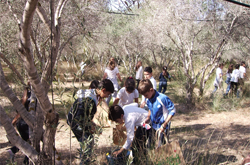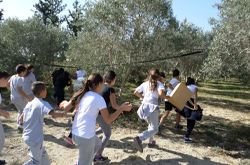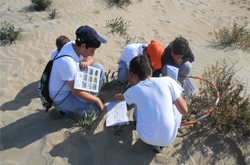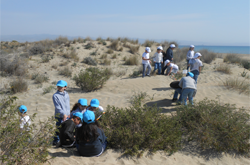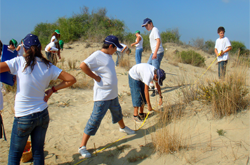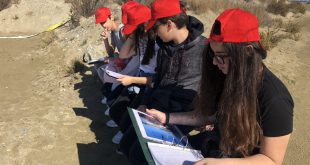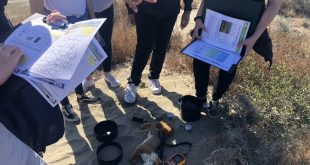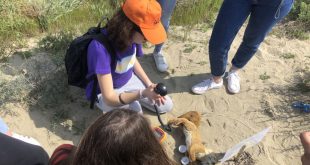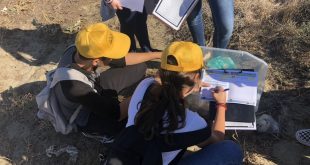The aims of the Environmental Education Program “Recycling, 5R – Sustainable Consumption,” are: Students: To detect the several categories of the recyclable materials as well as the ecosystems where they come from. To investigate the four simple and effective ways for the production of less waste (4R: Refuse-Reduce-Recycle-Reuse). To develop a ...
Read More »Recycling, 5R: Sustainable Consumption – Participation
The Environmental Education Programs of the CYCERE are addressed towards all the schools of the Primary and Secondary Education and are provided FREE OF CHARGE. Max students: 30. In some exceptional cases the CYCERE may receive up to 40 students (after agreement with staff of the CYCERE). Information tel. 25954954. ...
Read More »The world of the coast – Introduction
This program promotes the development of researching skills in the field studies concerning the natural environment, the conceptual understanding and the environmental awareness among students about the world of the coast through a holistic and experiential learning approach. The methodological approaches adopted follow the principles and the philosophy of the ...
Read More »The world of the coast – Description of the program
This daylong program includes the students’ participation in a sequence of activities, which give emphasis both on theoretical and practical aspects and it is based on the methodology of problem solving. It is organized in a way that supports the understanding of environmental concepts and issues and enforces students into ...
Read More »The world of the coast – Aims of the program
The aims of the Environmental Education Program “The world of the coast” are: Students: To learn and to get familiarized with the ecosystem of the coast and the coastal sand dunes area of Akrotiri. To investigate the relationship between biotic and abiotic factors as well as their seasonal changes. To study ...
Read More »The world of the coast – Participation
The Environmental Education Programs of the CYCERE are addressed towards all the schools of the Primary and Secondary Education and are provided FREE OF CHARGE. Max students: 30. In some exceptional cases the CYCERE may receive up to 40 students (after agreement with staff of the CYCERE). Information tel. 25954954. ...
Read More »Environmental Crime on the Coast – Introduction
This program promotes the cultivation of exploration skills with field studies in nature, the conceptual understanding and environmental awareness of students about the world of the coast, through a holistic approach and experiential learning. The methodological approaches adopted are intertwined with the principles and philosophy of Environmental Education and Education ...
Read More »Environmental crime on the coast – Program Description
This one-day program includes the participation of students in a series of activities with theoretical and practical direction and is based on the pedagogical methodology of problem solving. It is organized in such way as to support the understanding of environmental concepts and issues by anchoring students in an exciting ...
Read More »Environmental crime on the coast – Aims
The objectives of the Environmental Education Program “Environmental Crime on the Coast” are the students: To get to know the ecosystem of the coast and the coastal dunes of the area of Akrotiri. Discover how the coastal dunes are created. To explore the relationship between biotic and abiotic factors and ...
Read More »Environmental crime on the coast – Participation
The Environmental Education Programs of the CYCERE are addressed towards all the schools of the Primary and Secondary Education and are provided FREE OF CHARGE. Max students: 30. In some exceptional cases the CYCERE may receive up to 40 students (after agreement with staff of the CYCERE). Information tel. 25954954. Send your application as ...
Read More » Κυπριακό Κέντρο Περιβαλλοντικής Έρευνας & Εκπαίδευσης – Κυκπεε
Κυπριακό Κέντρο Περιβαλλοντικής Έρευνας & Εκπαίδευσης – Κυκπεε
